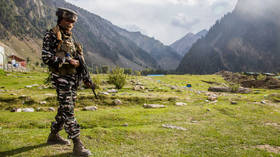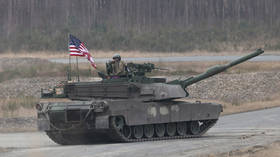US intel helped India win border clash – media

Real-time US intelligence information on Chinese troop positions was instrumental in enabling India to repel a border incursion in disputed territory of the high Himalayas late last year, a Washington media outlet has reported.
Unprecedented intelligence-sharing with the US military, including satellite imagery, alerted India to Chinese positions and force strength in advance of an incursion by the People’s Liberation Army (PLA), US News & World Report said on Monday, citing unidentified people familiar with the incident. Indian troops were ready for the subsequent clash in the Arunachal Pradesh region on December 9, wielding spiked clubs and Tasers.
Unlike previous border skirmishes, the incident didn’t result in any deaths. Casualties were limited to about a dozen injuries, the report claimed, and PLA troops retreated back into Chinese territory. The intelligence shared was more detailed and delivered more quickly than anything the US had previously provided to the Indian military.
“They were waiting, and that’s because the US had given India everything to be fully prepared for this,” the media outlet quoted one source as saying. “It demonstrates a test case of the success of how the two militaries are now cooperating and sharing intelligence.” The assistance reflected “a new era of cooperation between the two powers in recognition of their shared ambitions to push back on Chinese expansionism.”
Former Pentagon official Vikram Singh told the outlet that the PLA is in a “probing-and-testing phase.” He added, “They want to know how the Indians can and will respond and see what the Indians can detect. It’s about China preparing for future conflict.”
Chinese officials declined to comment on the reported clash with Indian troops, the outlet said. Tensions in the border region have been high since a 2020 battle that broke out in the Galwan Valley after China objected to India’s construction of a road in its claimed territory. That fight reportedly resulted in 20 deaths on the Indian side and four on the Chinese side.
The new intelligence-sharing stems from a cooperation agreement that the US and Indian governments signed in the wake of the Galwan Valley incident.














